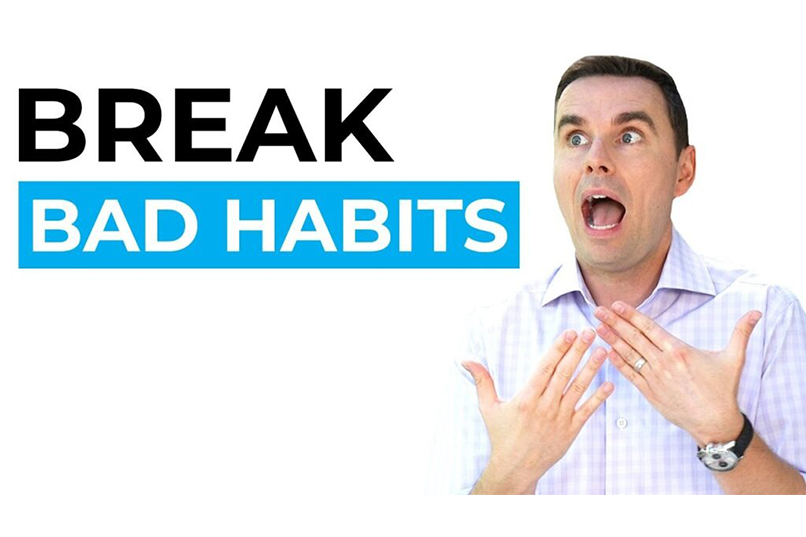One of the most common bad habits is procrastination. Many of us tend to put off important tasks until the last minute, which can lead to stress and anxiety. Procrastination can also cause us to miss deadlines, which can have serious consequences in both our personal and professional lives. To overcome this habit, it’s important to develop a sense of discipline and prioritize our tasks.
Another bad habit that many people struggle with is overeating. In a world where food is readily available and often affordable, it’s easy to indulge in unhealthy snacks and meals. Overeating can lead to weight gain, which can in turn cause a number of health problems such as diabetes, heart disease, and high blood pressure. To overcome this habit, it’s important to develop a healthy relationship with food and practice moderation.
Smoking is another bad habit that is difficult to break. Smoking is not only harmful to our own health, but also to the health of those around us. It can cause lung cancer, heart disease, and a number of other health problems. To quit smoking, it’s important to seek help from a healthcare professional or support group, and to develop healthy coping mechanisms to manage cravings.
Another bad habit that many people struggle with is spending too much time on social media. Social media can be addictive, and spending too much time scrolling through our feeds can lead to feelings of loneliness, anxiety, and depression. To break this habit, it’s important to set limits on our social media use and to engage in activities that promote positive mental health, such as exercise and spending time with loved ones.
One bad habit that is often overlooked is negative self-talk. Many of us tend to be overly critical of ourselves, which can lead to low self-esteem and a negative outlook on life. To overcome this habit, it’s important to practice self-compassion and to challenge negative thoughts with positive affirmations.
Another bad habit that can have serious consequences is substance abuse. Whether it’s drugs or alcohol, substance abuse can lead to addiction, physical harm, and even death. To overcome this habit, it’s important to seek professional help and support, and to develop healthy coping mechanisms to manage stress and emotions.

One such habit is nail-biting. This is a common habit among many people, especially when they are anxious or stressed. Nail-biting can lead to damaged nails and cuticles, as well as the spread of germs and bacteria. To overcome this habit, it’s important to identify the triggers that lead to nail-biting and find healthy ways to manage stress and anxiety, such as deep breathing or meditation.
Another bad habit that many people struggle with is not exercising enough. Exercise is important for maintaining good physical and mental health, yet many people lead sedentary lifestyles. This can lead to weight gain, muscle loss, and a host of health problems. To overcome this habit, it’s important to find a form of exercise that is enjoyable and sustainable, and to make it a regular part of our routine.
Negative thinking is another bad habit that can hold us back in life. When we constantly focus on the negative aspects of our lives, we can become pessimistic and lose sight of our goals and aspirations. To overcome this habit, it’s important to practice positive thinking and gratitude, and to surround ourselves with positive influences.
Another bad habit that can impact our lives is overspending. Many people struggle with impulse buying and living beyond their means, which can lead to financial stress and debt. To overcome this habit, it’s important to develop a budget and stick to it, and to avoid impulse purchases by practicing mindful spending.
Poor time management is another bad habit that can lead to stress and anxiety. When we fail to plan and prioritize our time effectively, we can become overwhelmed with tasks and deadlines. To overcome this habit, it’s important to develop good time-management skills, such as setting realistic goals and deadlines, and breaking down tasks into manageable steps.
Falling into bad habits can be easy, but breaking them can be much more challenging. It takes effort, self-awareness, and commitment to resist bad habits and establish healthier ones. Here are some strategies to help resist falling into bad habits:

Identify triggers: Understanding the triggers that lead to bad habits is the first step in breaking them. Pay attention to the situations, people, and emotions that prompt the bad behavior. Once you identify the triggers, you can take steps to avoid them or develop strategies to manage them.
Create a plan: Developing a plan to resist bad habits can increase your chances of success. Set specific, measurable goals, and create a plan that includes strategies for dealing with obstacles and setbacks. Identify the steps you need to take to achieve your goals and track your progress.
Seek support: Breaking bad habits can be challenging, but it’s important to remember that you don’t have to do it alone. Seek support from friends, family, or a professional if necessary. Consider joining a support group or online community where you can connect with others who are working towards similar goals.
Practice self-care: Practicing self-care can help reduce stress and anxiety, which can make it easier to resist bad habits. Make time for activities that you enjoy, such as exercise, meditation, or spending time with loved ones. Get enough sleep and eat a healthy, balanced diet.
Focus on the positive: Instead of focusing on what you’re giving up, focus on the positive changes you’re making in your life. Celebrate small successes and acknowledge progress, even if it’s not perfect. Be kind and compassionate to yourself and remember that breaking bad habits is a process that takes time.
Finally, one bad habit that many people struggle with is not getting enough sleep. In today’s fast-paced world, it’s easy to sacrifice sleep in order to get more done. However, lack of sleep can lead to a number of health problems such as obesity, heart disease, and depression. To overcome this habit, it’s important to prioritize sleep and to develop healthy sleep habits, such as establishing a consistent bedtime routine.
In conclusion, bad habits can have a negative impact on our lives, but it’s never too late to make positive changes. By identifying our bad habits and finding healthy ways to overcome them, we can improve our physical and mental health, as well as our personal and professional lives. It’s important to be patient and persistent in making these changes, and to seek help and support when needed. By focusing on the present moment and making small changes every day, we can create a healthier and happier future for ourselves.



